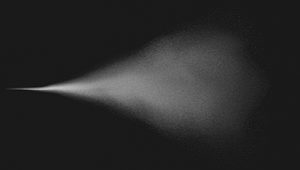Newsletter – September 2023
September 13, 2023

ALTHOUGH HE HAD NO SYMPTOMS, SCOTT HAD PROSTATE CANCER
Scott is an outlier in the world of medicine. His PSA level was only 4.0 when he was diagnosed at age 59 with prostate cancer. Typically, that’s not a level that is worrisome. But his number had been steadily rising with every annual test, so Dr. Michael Hagg ordered a biopsy. Despite having no symptoms, Scott tested positive for prostate cancer.
Because prostate cancer is curable if diagnosed early, Scott is now cancer free. The American Urological Association recommends men between 55 and 70 get annual PSA screenings. For men with risk factors like a family history, or African American ethnicity, screening should begin at age 40.
If you’re due for a PSA test (it’s a simple blood test), ask your primary care provider or urologist to schedule a screening.
HERE WE GROW AGAIN!
 This month we welcome Dr. Jay Fuletra to MidLantic Urology’s Media office located at 200 East State Street, Suite 205. Dr. Fuletra earned his medical degree from Temple University and completed a residency in Urology at Penn State Health. In addition he has been specially trained in robotic surgery and endourology (stone disease) via a fellowship at the University of Pennsylvania.
This month we welcome Dr. Jay Fuletra to MidLantic Urology’s Media office located at 200 East State Street, Suite 205. Dr. Fuletra earned his medical degree from Temple University and completed a residency in Urology at Penn State Health. In addition he has been specially trained in robotic surgery and endourology (stone disease) via a fellowship at the University of Pennsylvania.
During schooling, Dr. Fuletra’s talent was recognized with various scholarships, academic awards, and the Penn State Urology Resident Hustle Award for always being “on point” and “ahead of the game.”
Make an appointment with Dr. Fuletra by calling 610-565-2776.
AQUABLATION THERAPY NOW AVAILABLE TO TREAT BPH
 A minimally invasive treatment option for benign prostatic hyperplasia (BPH) or enlarged prostate is now available from MidLantic Urology’s Dr. Dean Laganosky.
A minimally invasive treatment option for benign prostatic hyperplasia (BPH) or enlarged prostate is now available from MidLantic Urology’s Dr. Dean Laganosky.
Aquablation therapy is an in-hospital procedure that uses the power of a heat-free waterjet delivered with robotic precision to remove prostate tissue. Aquablation provides long-lasting symptom relief with low rates of irreversible complications.
BPH is a non-cancerous condition that affects half of men ages 51 to 60. The most common symptoms of BPH are:
- Frequent or urgent need to urinate, including increased nighttime urination
- Difficulty starting urination
- Weak urine stream or a stream that stops and starts
- Dribbling after urination
- Inability to empty the bladder completely
Learn more about Aquablation.
IN CASE YOU MISSED IT

In case you missed it, Dr. Matthew Sterling’s recent 30-minute webinar about incontinence in men is now available on our website.
His overall message was this: If you’re often interrupted by a sudden urge to urinate, or if activities like coughing or lifting sometimes cause leakage, you don’t have to live with it. Incontinence in men is treatable.
Watch here as Dr. Sterling explains the reasons why incontinence occurs in men, and the treatment options that can eliminate this frustrating condition.
Learn more about other common conditions by watching these webinars:
- Bladder Control issues by Dr. Darlene Gaynor. Watch here
- BPH (enlarged prostate) by Dr. Michael Hagg. Watch here
- BPH (enlarged prostate) by Dr. Dean Laganosky. Watch here

